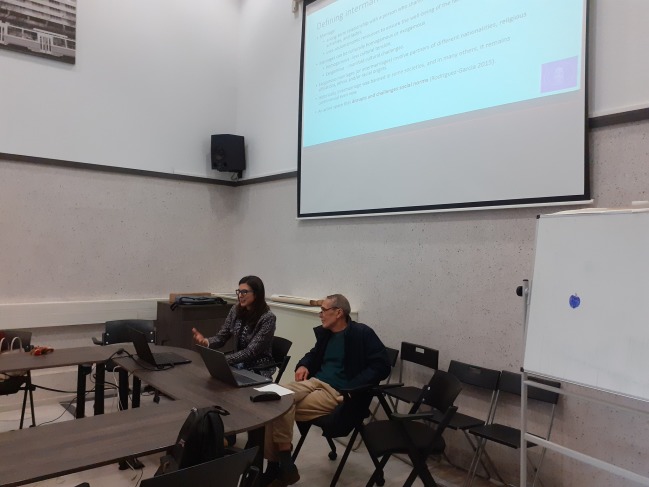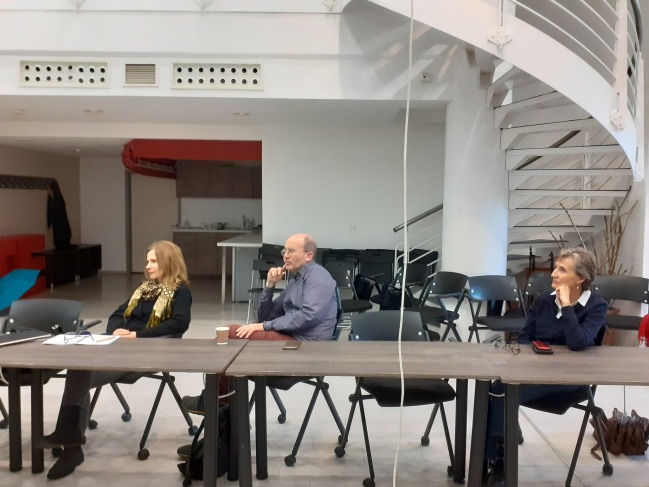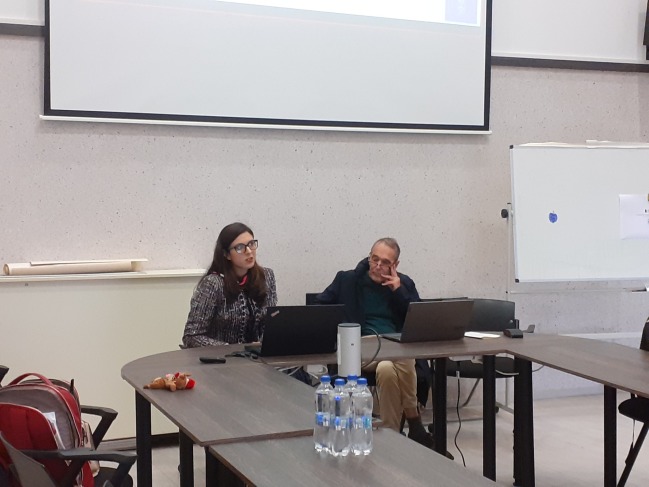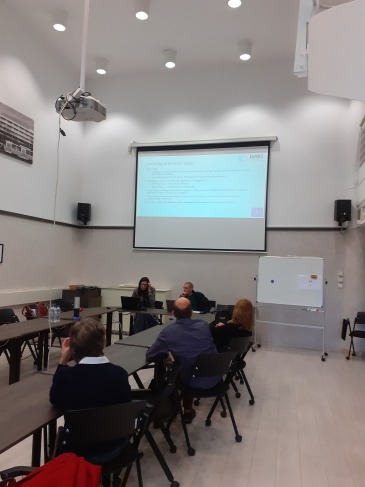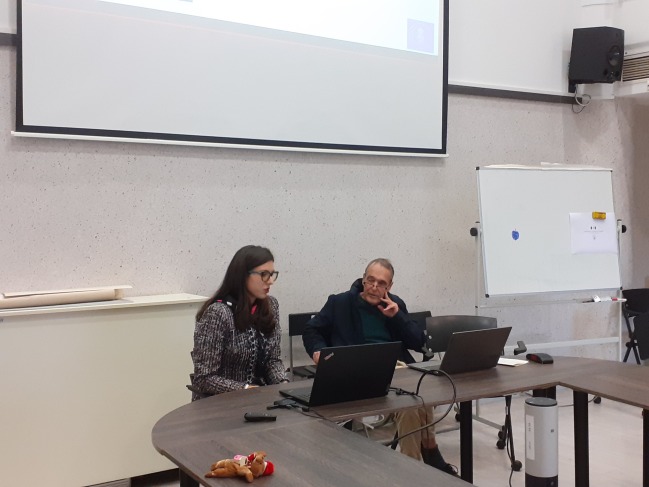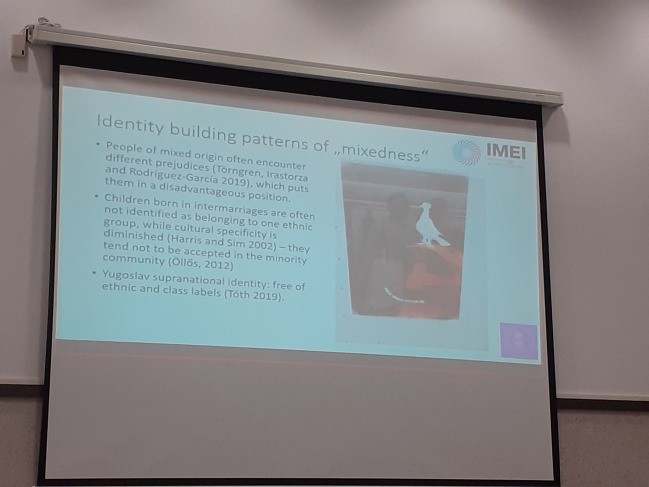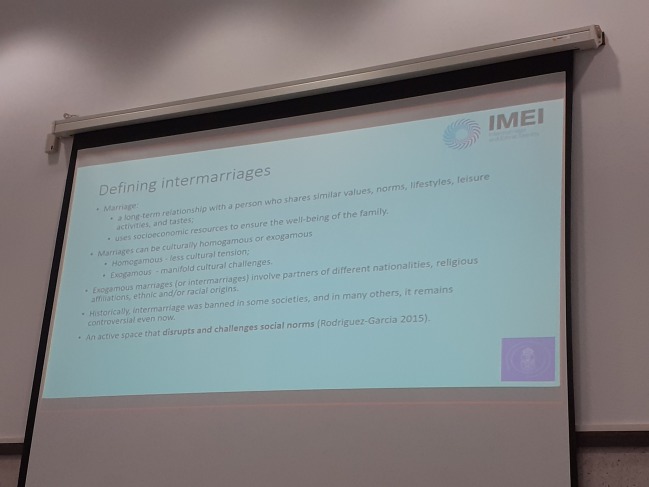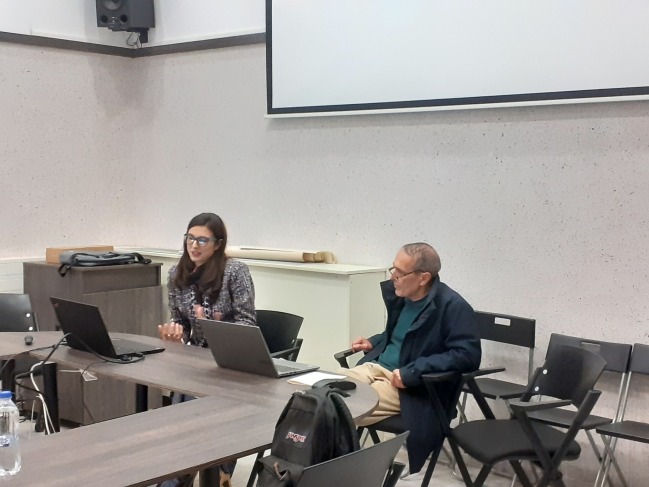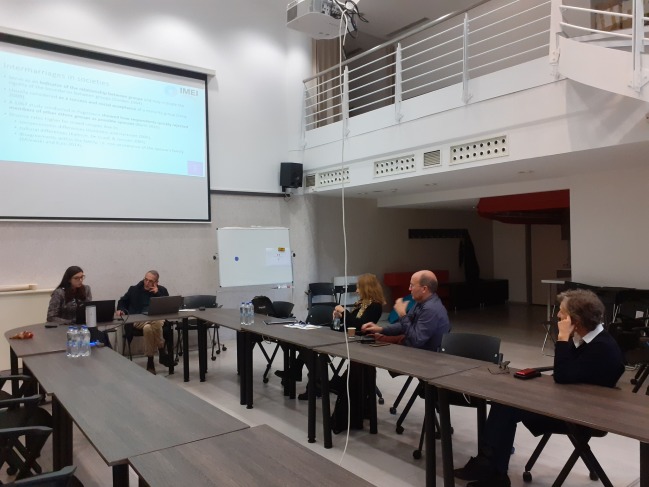Marie Skłodowska-Curie Action: Project Launch Event
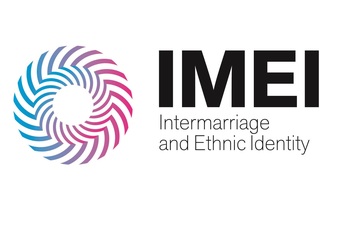
15. November 2022. 14:00 - 15:30
ELTE TáTK, Faculty Council Room – (1117 Budapest, Pázmány Péter sétány 1/a)
2022. November 15. 14:00 - 15:30
ELTE TáTK, Faculty Council Room – (1117 Budapest, Pázmány Péter sétány 1/a)
About the lecture
Marriage implies the choice of a long-term relationship with a person who shares similar values, norms, lifestyles, leisure activities, and tastes. It is also a relationship which uses socioeconomic resources to ensure the well-being of the family. Marriages can be culturally homogamous or exogamous; the former imply less cultural tension, and the latter manifold cultural challenges. Exogamous marriages (or intermarriages) involve partners of different nationalities, religious affiliations, and/or ethnic and racial origins. Historically, intermarriage was banned in some societies, and in many others it remains controversial even now. The literature on intermarriages has predominantly focused on immigrant groups, or groups with low socioeconomic status. The relevant discussions are related to changes in social status, cultural adaptability, or enclave effects, and refer to countries and regions with significant immigration such as the United States and Western Europe. However, not all minority groups are groups of immigrants, and nor are they insufficiently privileged. Intermarriages are also very common in the countries of Central and Eastern Europe, where the majority and autochthonous minority population enter into marriages that become an indicator of acculturation or even assimilation, and which play a major role in building the identity patterns of newer generations brought up in these arrangements. The paper presents a comprehensive review of intermarriages, starting from an international context but focusing on the territory of the former Yugoslavia and its historical perspective, with special reference to Serbia and the multi-ethnic region of Vojvodina, where the proportion of intermarriages has always been large.
Participants
Ass. prof. Karolina Lendák-Kabók is affiliated with the Faculty of Philosophy, University of Novi Sad (Serbia) and she is a Marie Sklodowska-Curie Individual Fellow at the Faculty of Social Sciences, ELTE (Hungary). She obtained her PhD degree from the University of Novi Sad in 2019. The focus of her research is the position of ethnic minorities, language barriers, gender differences in academia, and ethnic intermarriages. She has recently published a book entitled Ethnic Minorities in Serbian Academia – the Role of Gender and Language Barrier (Palgrave Macmillian, 2022).
The event will be chaired by Prof. Antal Örkény. Discussants: Nóra Kovács, PhD, Centre for Social Sciences, Institute for Minority Studies, Hungarian Academy of Sciences Centre of Excellence.
The lecture is supported by Maria Skłodowska-Curie project, grant number: 101068320 – IMEI – HORIZON-MSCA-2021-PF-01.
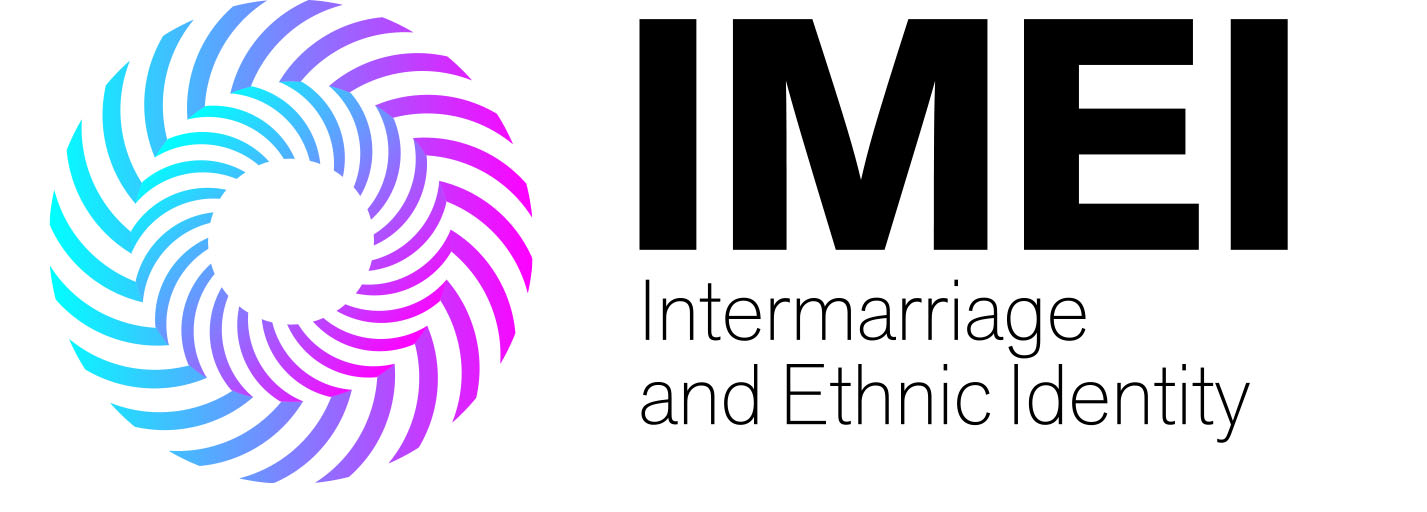
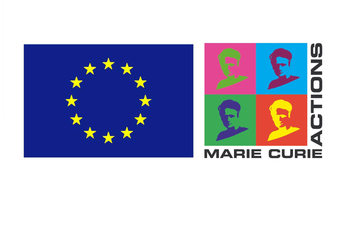
MARIE SKŁODOWSKA-CURIE ACTION: PROJECT LAUNCH EVENT
MARIE SKŁODOWSKA-CURIE ACTION: PROJECT LAUNCH EVENT
0
/
0









0
/
0


